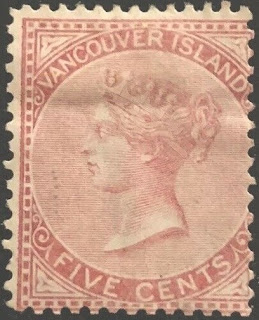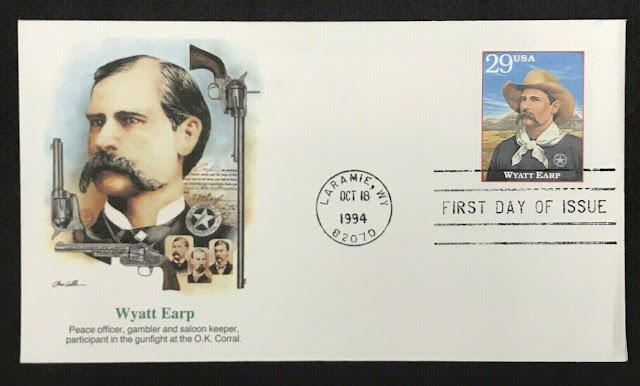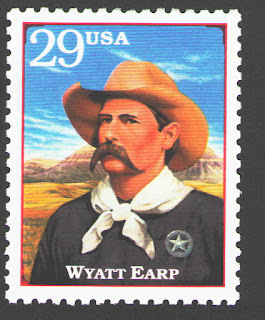Here are some events that happened on January 13th. It could be an event or a person that died or was born on that day
1849 – Establishment of the Colony of Vancouver Island.
The Colony of Vancouver Island, officially known as the Island of Vancouver and its Dependencies, was a Crown colony of British North America from 1849 to 1866, after which it was united with the mainland to form the Colony of British Columbia. The united colony joined Canadian Confederation, thus becoming part of Canada, in 1871. The colony comprised Vancouver Island and the Gulf Islands of the Strait of Georgia
Captain James Cook was the first European to set foot on the Island at Nootka Sound in 1778, claiming the territory for Great Britain. Fourteen years later, under the provisions of the Nootka Convention, Spain ceded its claims to Vancouver Island and the adjoining islands (including the Gulf Islands). It was not until 1843, however, that Britain – under the auspices of the Hudson's Bay Company (HBC) – established a settlement on Vancouver Island. The settlement was in the form of a fur trading post originally named Fort Albert (afterward Fort Victoria). The fort was located at the Songhees settlement of Camosack (Camosun), 200 meters northwest of the present-day Empress Hotel on Victoria's Inner Harbour.
With the signing of the Treaty of Washington in 1846, the mainland of Oregon Territory below the 49th parallel became American territory. Thus in 1849, HBC moved its western headquarters from Fort Vancouver on the Columbia River (present day Vancouver, Washington) to Fort Victoria. Chief Factor James Douglas, was relocated from Fort Vancouver to Fort Victoria to oversee the Company's operations west of the Rockies.
This development prompted the British colonial office to designate the territory a Crown colony on 13 January 1849. The colony was immediately leased to the HBC for a ten-year period, and Douglas was charged with encouraging British settlement. Richard Blanshard was named the colony's governor. Blanshard discovered that the hold of the HBC over the affairs of the new colony was all but absolute, and that it was Douglas who held all practical authority in the territory. There was no civil service, no police, no militia, and virtually every British colonist was an employee of the HBC. Frustrated, Blanshard abandoned his post a year later, returning to England. In 1851, his resignation was finalised, and the colonial office appointed Douglas as governor.
1929 Died: Wyatt Earp, American police officer (b. 1848)
Wyatt Berry Stapp Earp (March 19, 1848 – January 13, 1929) was an American Old West lawman and gambler in Cochise County, Arizona Territory, and a deputy marshal in Tombstone. He worked in a wide variety of trades throughout his life and took part in the famous gunfight at the O.K. Corral, during which lawmen killed three outlaw Cochise County Cowboys. He is often erroneously regarded as the central figure in the shootout, although his brother Virgil was Tombstone city marshal and deputy U.S. marshal that day and had far more experience as a sheriff, constable, marshal, and soldier in combat.
Earp was also a professional gambler, teamster, and buffalo hunter, and he owned several saloons, maintained a brothel, mined for silver and gold, and refereed boxing matches. He spent his early life in Pella, Iowa. In 1870, he married Urilla Sutherland who contracted typhoid fever and died shortly before their first child was to be born. During the next two years, Earp was arrested for stealing a horse, escaped from jail, and was sued twice. He was arrested and fined three times in 1872 for "keeping and being found in a house of ill-fame". His third arrest was described at length in the Daily Transcript, which referred to him as an "old offender" and nicknamed him the "Peoria Bummer", another name for loafer or vagrant.
By 1874, he arrived in the boomtown of Wichita, Kansas, where his reputed wife opened a brothel. On April 21, 1875, he was appointed to the Wichita police force and developed a solid reputation as a lawman, but he was fined and dismissed from the force after getting into a fistfight with a political opponent of his boss. Earp immediately left Wichita, following his brother James to Dodge City, Kansas, where he became an assistant city marshal. In the winter of 1878, he went to Texas to track down an outlaw, and he met John "Doc" Holliday whom Earp credited with saving his life.
Earp moved constantly throughout his life from one boomtown to another. He left Dodge City in 1879 and moved with brothers James and Virgil to Tombstone, where a silver boom was underway. The Earps clashed with an informal group of outlaws known as the "Cowboys". Wyatt, Virgil, and their younger brother Morgan held various law-enforcement positions which put them in conflict with Tom McLaury, Frank McLaury, Ike Clanton, and Billy Clanton who threatened to kill the Earps on several occasions. The conflict escalated over the next year, culminating in the shoot out at the O.K. Corral on October 26, 1881, in which the Earps and Doc Holliday killed three of the Cowboys. In the next five months, Virgil was ambushed and maimed, and Morgan was assassinated. Wyatt, Warren Earp, Doc Holliday, and others formed a federal posse which killed three of the Cowboys whom they thought responsible. Wyatt was never wounded in any of the gunfights, unlike his brothers Virgil and Morgan or his friend Doc Holliday, which only added to his mystique after his death.
Earp was a lifelong gambler and was always looking for a quick way to make money. After leaving Tombstone, he went to San Francisco where he reunited with Josephine Marcus, and she became his common-law wife. They joined a gold rush to Eagle City, Idaho, where they owned mining interests and a saloon. They left there to race horses and open a saloon during a real estate boom in San Diego, California. Back in San Francisco, Wyatt raced horses again, but his reputation suffered irreparably when he refereed the Fitzsimmons vs. Sharkey boxing match and called a foul which led many to believe that he fixed the fight. They moved briefly to Yuma, Arizona, before joining the Nome Gold Rush in 1899. He and Charlie Hoxie paid $1,500 (about $51,000 in 2018) for a liquor license to open a two-story saloon called the Dexter and made an estimated $80,000 (about $2 million in 2017 dollars). The couple then left Alaska and opened another saloon in Tonopah, Nevada, the site of a new gold find. Around 1911, Earp began working several mining claims in Vidal, California, retiring in the hot summers with Josephine to Los Angeles. He made friends among early Western actors in Hollywood and tried to get his story told, but he was portrayed only very briefly in one film produced during his lifetime: Wild Bill Hickok (1923).
Earp died on January 13, 1929. He was known as a Western lawman, gunfighter, and boxing referee. He had a notorious reputation for both his handling of the Fitzsimmons–Sharkey fight and his role in the O.K. Corral gunfight. This only began to change after his death when the extremely flattering biography Wyatt Earp: Frontier Marshal was published in 1931. It became a bestseller and created his reputation as a fearless lawman. Since then, Earp has been the subject of numerous films, television shows, biographies, and works of fiction which have increased both his fame and his notoriety. Long after his death, he has many devoted detractors and admirers. His modern-day reputation is that of the Old West's toughest and deadliest gunman.
US stamp and First Day Cover depicting Wyatt Earp
1941 Died: James Joyce, Irish novelist, short story writer, and poet (b. 1882)
James Augustine Aloysius Joyce (2 February 1882 – 13 January 1941) was an Irish novelist, short story writer, poet, teacher, and literary critic. He contributed to the modernist avant-garde and is regarded as one of the most influential and important authors of the 20th century. Joyce is best known for Ulysses (1922), a landmark work in which the episodes of Homer's Odyssey are paralleled in a variety of literary styles, most famously stream of consciousness. Other well-known works are the short-story collection Dubliners (1914), and the novels A Portrait of the Artist as a Young Man (1916) and Finnegans Wake (1939). His other writings include three books of poetry, a play, his published letters and occasional journalism.
Joyce was born in Dublin into a middle-class family. A brilliant student, he briefly attended the Christian Brothers-run O'Connell School before excelling at the Jesuit schools Clongowes and Belvedere, despite the chaotic family life imposed by his father's unpredictable finances. He went on to attend University College Dublin.
In 1904, in his early twenties, Joyce emigrated to continental Europe with his partner (and later wife) Nora Barnacle. They lived in Trieste, Paris, and Zürich. Although most of his adult life was spent abroad, Joyce's fictional universe centres on Dublin and is populated largely by characters who closely resemble family members, enemies and friends from his time there. Ulysses in particular is set with precision in the streets and alleyways of the city. Shortly after the publication of Ulysses, he elucidated this preoccupation somewhat, saying, "For myself, I always write about Dublin, because if I can get to the heart of Dublin I can get to the heart of all the cities of the world. In the particular is contained the universal."
Irish stamps commemorating James Joyce






No comments:
Post a Comment